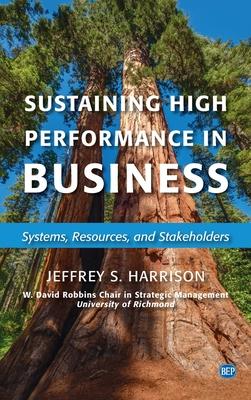Many books and articles have been written about how firms can achieve and sustain high performance. They typically focus on a particular aspect of the firm such as its culture, resources, leadership, ability to learn, or management practices. However, often the very firms that are used as examples are no longer high performing even a few years later.
In contrast, this book asserts that it is the efficiency and effectiveness of a firm's entire value creating system that determines its performance over the long term. Systems theory is used as an integrative mechanism to combine the best ideas from economics, the resource-based perspective, and stakeholder theory.
Based on this theoretical foundation, tools are provided for conducting in-depth, detailed analyses of each part of a firm's value creation system and its contribution to the total stakeholder value created by the firm. This information leads to the development of strategies, including specific initiatives for overcoming weaknesses in the system and for creating new value for stakeholders, based on the reasoning that firms exist to create value for their stakeholders - customers, employees, shareholders, suppliers, and the communities in which they operate.
